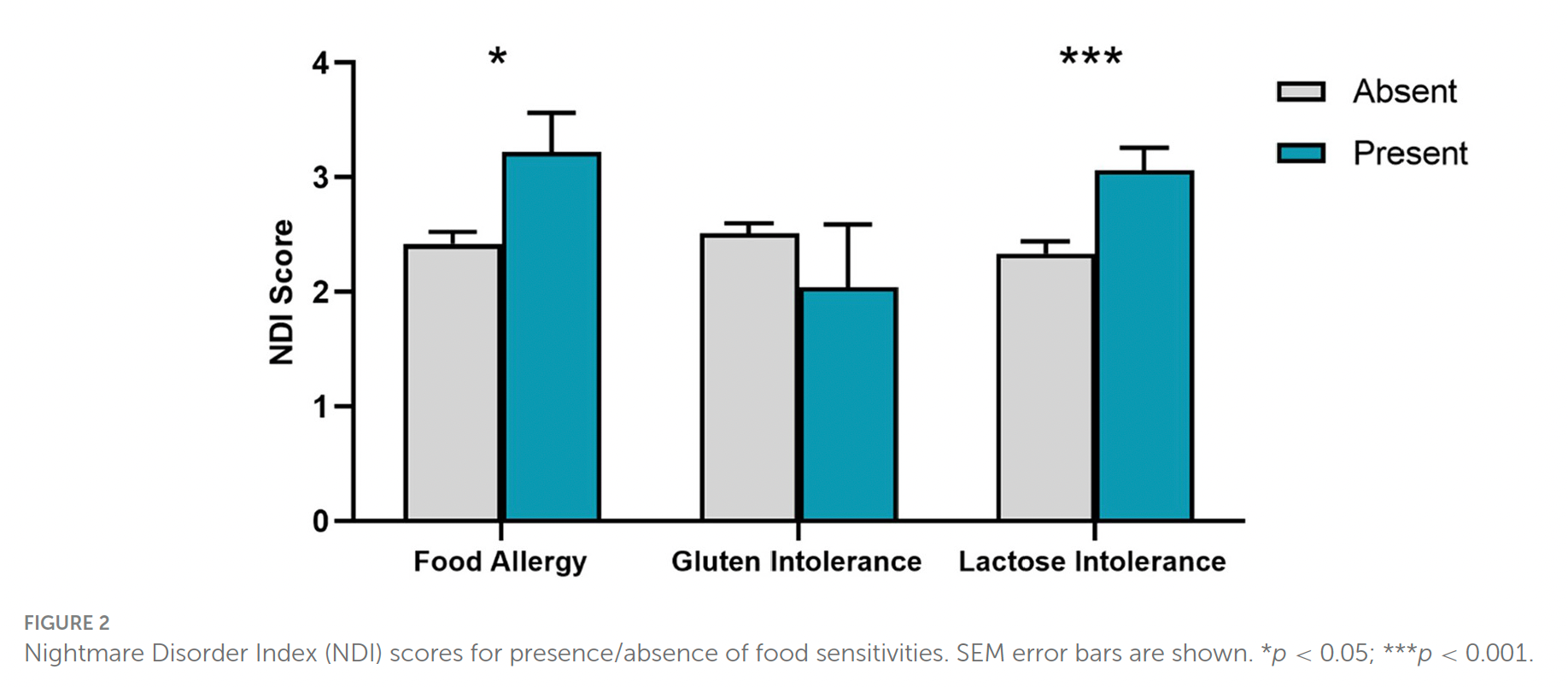Weird dreams and vivid nightmares following late-night consumption of cheese products are surprisingly common complaints, but scientific evidence linking the two has been lacking.
A new study investigating the relationships between food, sleep, and dreams confirms a number of foods you eat before bed may indeed have a very real impact on the night ahead.
Dream neuroscientist Tore Nielsen of the University of Montreal, who led the study, is often asked whether food affects dreaming, and has published research on the topic before.
In the new study, he and his team recruited 1,082 psychology students from Canadian MacEwan University to undertake an online survey that probed their food habits, sleep time and quality, dreams, and nightmares. It also assessed their perception of how certain kinds of food, and time of eating, impacted their sleep and dreams, if at all.
Related: Cheese Makes You Happy And Could Boost Healthy Aging, Study Suggests
"These new findings imply that changing eating habits for people with some food sensitivities could alleviate nightmares. They could also explain why people so often blame dairy for bad dreams," says Nielsen.
Only 5.5 percent of respondents believed the type of food being eaten and the timing of its consumption before sleep affected their dreams, but most people in this group blamed either dairy or sweet foods for changes. This was especially true of disturbing or bizarre dreams: 31 percent blamed these on desserts or sweets, while 22 percent blamed dairy.
The researchers also found a strong association between lactose intolerances and food allergies and nightmares and poor sleep, perhaps because gas and stomach pains interrupted sleep in ways that increased the chances of experiencing and recalling dreams.
This suggests that treating food intolerances and allergies with dietary changes may improve people's sleep, as well as their gastrointestinal comfort.

"Nightmares are worse for lactose-intolerant people who suffer severe gastrointestinal symptoms and whose sleep is disrupted," says Nielsen.
"This makes sense, because we know that other bodily sensations can affect dreaming. Nightmares can be very disruptive, especially if they occur often, because they tend to awaken people from sleep in a dysphoric state. They might also produce sleep avoidance behaviors. Both symptoms can rob you of restful sleep."
The study also found that people who eat healthier (better food, more intuitive eating, and less food in the evening) report better dream recall, while people who ate less healthily (more junk food, less reliance on hunger and satiety, eating more food in the evening) tended to have more severe nightmares, or dreams with a more negative tone, and (perhaps thankfully) lower dream recall.
Because the study is based on self-reported data from university students, it's not necessarily representative of the broader population. And it can only tell us about people's perception of the relationship between food and dreams, not the actual mechanisms that could cause such a phenomenon.
"We need to study more people of different ages, from different walks of life, and with different dietary habits to determine if our results are truly generalizable to the larger population," Nielsen says.
"Experimental studies are also needed to determine if people can truly detect the effects of specific foods on dreams. We would like to run a study in which we ask people to ingest cheese products versus some control food before sleep to see if this alters their sleep or dreams."
We're sure it won't be difficult to find volunteers.
The research was published in Frontiers in Psychology.